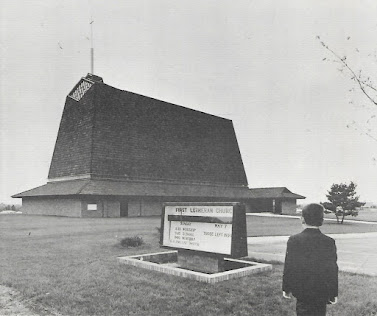150 Years of Mission & Ministry
By Bishop Brian Maas
We have now formally kicked off the celebration of the 150th anniversary of the founding of the Nebraska Synod. We’ll spend the next year reflecting on our shared history and inviting each congregation to reflect on its own history as well. We do this not to rediscover some glorious past to which we might return (we won’t—we can’t); rather, we study our histories because they remind us of our stories.
Our story reaches back not only 150 years, but millennia, to the very origins of God’s people. The Bible is our story, every bit as much as our local histories. We reflect on that story so that we might continue to live that story; to see what chapters are yet to be written.
This is the why behind the reflection and the history-telling; to remind ourselves of all of those times when God was present in spite of what seemed to be happening in the world—to see God at work in the joys and celebrations we’ve known, and to recognize God’s presence with us in the sorrows and losses we’ve experienced.
We tell our story, again and again, to remind us of the heritage we’ve inherited, the foundation on which we stand. Our forebears’ faithful generosity and steadfastness have given us momentum and promise; God working through them has given us a future. We look to the past to renew our confidence for the future.
We hear much of how unique and unprecedented these days of pandemic (and more) are. To be sure, there are challenges quite unlike anything in the experiences of our lifetimes. On the other hand, we’ve been here before. The details were different, but the losses, the grief, the conflict and the uncertainty have all made their appearances in our story—from the earliest chapters of Genesis to last week’s headlines.
Again and again, God has proven faithful and God’s people have proven resilient. There’s no guarantee the future will be easy or pleasant or triumphant. But there will be a future. God will be in it, and so will God’s people. If our story tells us nothing else, it tells us that.
But it tells us so much more. It tells of our capacity to look and live beyond ourselves; tells of the power to be found in people willing to be vulnerable, to take risks, to extend themselves—to die daily to all of the things that divide us from one another, divide us from God, divide us even from our best selves.
We tell the story because we live the story. God continues to write that story in and through us. Because that’s true—as our history shows again and again and again—the future, whatever it holds, is certain. God is in that future and holds a place for God’s people there.
So we tell the story, to be encouraged to become the kind of people for whom that future waits.




Comments
Post a Comment